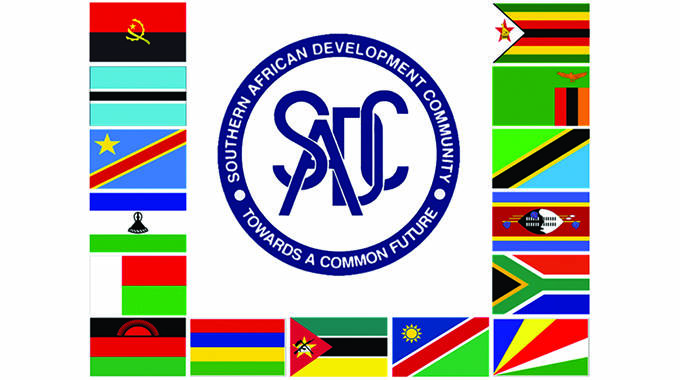Zimbabwe pulled out all stops for Sadc Summit success
Zimbabwe spent US$250 million on transport infrastructure projects, in preparation for the Southern African Development Community (SADC) Summit, held in August this year, according to a new Government report.
This came after a long period of limited to no investment in key infrastructure, as Zimbabwe battled an economic crisis that started at the turn of the millennium following the imposition of sanctions by western countries after the country took back land from white former farmers to resettle the landless majority.
The Government’s Infrastructure Investment Programme for 2024 refocused its approach to accommodate projects for hosting the 44th Ordinary SADC Summit of Heads of State and Government.
The projects included the construction of Boulevard Road to the New Parliament Complex in Mt Pleasant, upgrading of the VVIP Pavilion at the RG Mugabe International Airport and access road, information communication technology (ICT) service improvements, dedicated power line for the New Parliament building and street lighting rehabilitation and decoration.
“Under the transport sector, remarkable progress was registered in the implementation of projects in greater Harare with work worth about US$250 million being undertaken for projects earmarked for hosting the SADC summit in the New City in Mt Hampden,” the 2025 Infrastructure Investment Programme says.
The hosting of the 2024 SADC Summit, the report says, and the institutional framework developed under this auspice initiated critical high-impact projects and also fostered “aggression in the efficiency and effectiveness of the project delivery architecture given the tight turnaround times.”
President Mnangagwa assumed the chairmanship of SADC during the 44th Ordinary SADC Summit held in August this year.
Zimbabwe allocated ZiG$14,9 billion to infrastructure projects from January to September 2024.
Significant progress was also made in the ongoing rehabilitation of the Beitbridge to Harare highway and Harare to Chirundu highway. Other road projects, such as the Shurugwi-Mhandamabwe Road, Mbudzi Interchange and various rural roads, also saw substantial progress during the period.
In the energy sector, efforts focused on improving power supply, with projects like the 200kW solar mini-grid system in Chipinge upgraded. The water and sanitation sector prioritised dam projects, borehole drilling, and irrigation development.
The digital economy saw advancements in ICT infrastructure, including the rollout of national systems and the establishment of ICT-enabled disaster management centers. In the housing sector, projects like the Dzivarasekwa flats and the Welshman Mabhena Complex were completed.
In the education sector, efforts focused on infrastructure development, including the construction of new facilities and the provision of ICT equipment.
The health sector prioritised improving access to healthcare services, with the construction of new health centres and the procurement of medical equipment.
Social services, including infrastructure for persons with disabilities and vulnerable groups, also received attention.
Zimbabwe’s 2025 infrastructure investment programme will prioritise several key sectors to drive economic growth and improve the quality of life for its citizens.
As such, the Government plans to continue investing in road infrastructure, particularly the Harare-Masvingo-Beitbridge and Harare-Chirundu highways.
Additionally, efforts will be made to rehabilitate the country’s rail network, including procuring new locomotives and wagons. Upgrading key airports, such as R.G. Mugabe International Airport and Victoria Falls International Airport, is also a priority.
To address the country’s energy challenges, the Government aims to increase power generation capacity through new power plants and renewable energy sources. Energy efficiency measures will also be implemented to reduce demand and promote sustainable energy use.
Expanding broadband connectivity and digital services is a key focus area. The Government will invest in e-government initiatives to enhance public service delivery and strengthen cybersecurity measures to protect critical infrastructure.
The Government will promote affordable housing initiatives and support public-private partnerships to increase housing supply. Urban renewal projects, such as the revitalisation of Mbare, are also planned. Further, investments in infrastructure for housing and social amenities will be made.
Investing in rural infrastructure, including roads, water, and sanitation and improving access to healthcare, education, and social services is also among key Government priorities.-ebsinessweekl











